Thanks to the generous Liebentritt Faculty Development Award, I was able to visit prominent Arabic programs in well-established study abroad centers and universities in Jordan and Istanbul. This blog shares a few insights about CIEE- Amman/Jordan; a study abroad program for Arabic language and cultural studies with immersion experience and travel around fascinating personal exposure. I’m grateful to Ms. Zein Nsheiwat, Director, and all the wonderful Arabic Faculty at CIEE for their generosity, hospitality and kind accommodations during my visit. We hope in the future to have more of our own Arabic learners at Loyola University Chicago join CIEE too to be part of that linguistic and cultural exposure.
The program utilizes a functional approach to language learning which is students centered and hybrid evaluation methods ranging from entrance and exit OPI evaluations to one on one assessments. Language levels range from novice to advance with multitude of sources for its syllabi including their own textbook” shu fii maa fii– “What’s up?”, written by the Arabic program faculty coordinator Dr. Najih Abu Urabi. Students are immersed into both the standard Arabic and the Jordanian colloquial dialect via classroom contextualized learning, guest speakers, cultural events, immersion trips, and other venues.
The program offers both summer intensive programs as well as fall and spring semesters. Besides language learning, students also receive classes in religion, history, and other content related courses. The warm and friendly environment among students and teachers is visible and the program offers support for students in challenging situations, academically as well as emotionally. Some students have a home-stay arrangements with Arab families and others have their own dorms/ accommodations.
I was impressed my first day attending Dr. Najih’s class when he didn’t shy out from engaging students in major topics including culturally sensitive topics related to privacy and harassment, etc, in Arabic and attempting to engage all in relating to one’s own understanding of identity. Ustaadh Mohammad’s classes were pedagogically fun and interactive with his emphasis on students’ creativity in reproducing learned materials via skits and presentations. Ustaadha Rabia’s classes were well designed with critical awareness to the linguistic, religious, political, and sociocultural significance of texts in contexts. It was empowering to observe how ustaadha Gadeer allowed her students to be teachers in the last week to design games (like jeopardy and charade) and activities to review the vocabulary learned throughout summer.
Many thanks for all teachers; Dr. Najih, ustaadh Mohammad, ustaadha Rabi’a and ustaadha Gadeer, for allowing me to participate as a guest in their classrooms and for spending time answering my questions and explaining their teaching methods and strategies in teaching Arabic for speakers of other languages.
Many thanks for the enthusiastic kind students who consented to being photographed, observed, and even took the extra mile of engaging my own daughter, Amal, in their own classroom learning contexts. Amal and I were even offered a chocolate snack by a kind student on our last day saying that it was their snack time, and she liked us to join them too!
Stay tuned for more insights into Istanbul inshaa’Allah.
shukran !
ustaadha sawsan
Director Arabic Program @ Loyola University Chicago

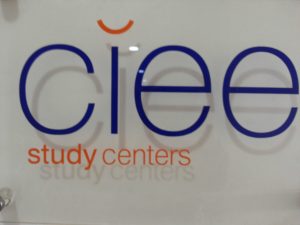
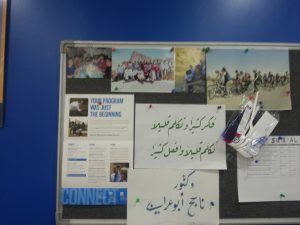
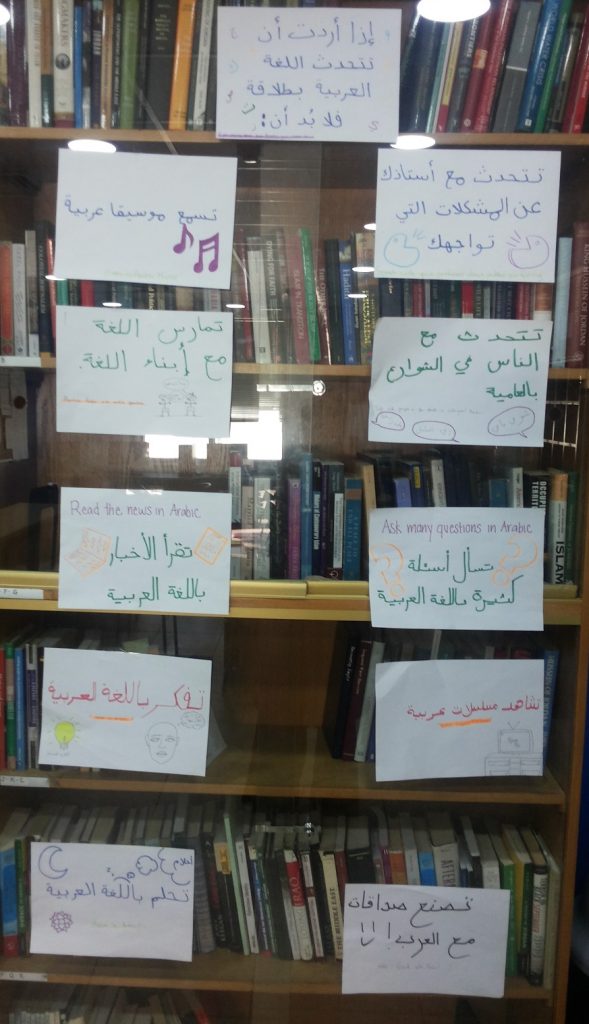
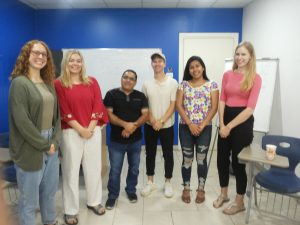
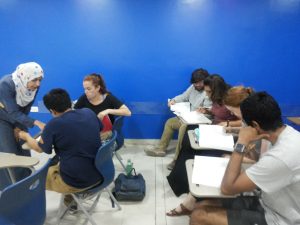
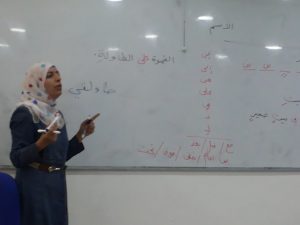
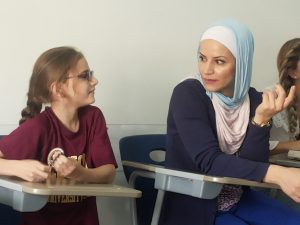
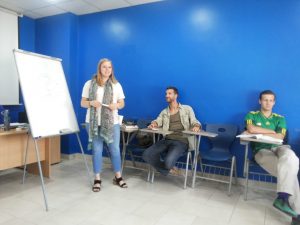
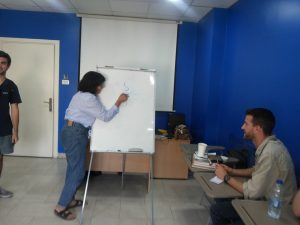
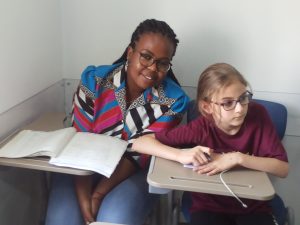
This is wonderful. Very nice to read about these experiences. Will there be more future information on updating the students about requirements and sign up information?
This is absolutely adorable! I am a strong believer in the appreciation of languages and cultural studies.